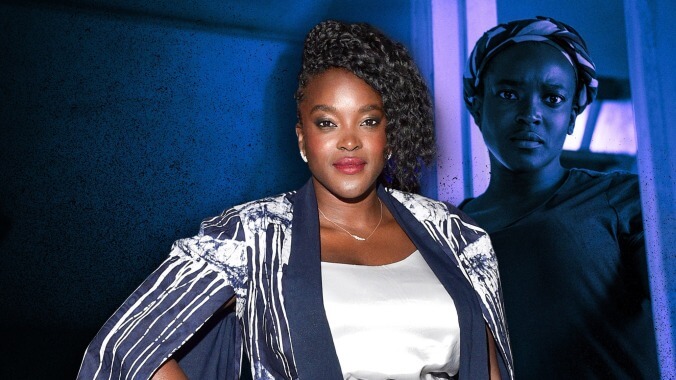Wunmi Mosaku on how His House and Lovecraft Country changed her: “I’m not being silent anymore”

Wunmi Mosaku feels that the intimate set of Remi Weekes’ His House, a dark thriller that centers on the haunting reality of a Sudanese refugee couple settling into an unwelcoming English town, was necessary and immersive. “We talk a lot about refugees and asylum seekers, but we don’t hear from them,” Mosaku told The A.V. Club. “We get numbers and politics and newspapers telling us how they got here. They’re not talking about the individual stories of how they suffered where they were from, how they suffered on the way to here, and how they continue to suffer in their place of refuge.” For her character, Rial, and her character’s husband, Bol (Sope Dirisu), their suffering is the product of both anti-immigrant sentiments and their turbulent escape from an embattled South Sudan, which led to the loss of their daughter. It’s a story that countless refugees already know by heart, translated in images of waterlogged monsters and a decrepit haunted house for those who aren’t intimately knowledgeable of that experience.
If anyone understand the communicative and transformative powers of the genre it’s Mosaku, who has made her mark in some of the most effective horror of the year. Both His House and HBO’s Lovecraft Country creatively reflect Black experiences across the diaspora, employing metaphorical imagery—all unsettling and effective in equal measure—to illustrate communal trauma. Days before both the film’s Netflix premiere and Lovecraft Country’s season finale, Mosaku shared how working on these projects have irrevocably changed her relationship with her own trauma and what attracted her to His House even as a “scaredy cat.”
The A.V. Club: A fun fact that we recently learned about you is that you aren’t that big of a fan of horror. In fact, you once said that you consider yourself a “scaredy cat.” And yet, you’ve worked within some of the most resonant works within the genre today, including Lovecraft Country and now Remi Weekes’ His House. What made you brave the genre in order to participate in this film?
Wunmi Mosaku: As a storyteller, I just want to tell good stories. The fear, the horror—that is a vehicle for a good story and it works; it’s not just fear for fear’s sake. It really is a perfect vehicle for exploring social issues and cultural oppression. That fear that you feel in the safety of your home when you’re watching a horror film is just an iota of the real, true fear that these characters are facing in worse situations, whether they’re being bullied by a cop in Lovecraft Country or if they’re a refugee journeying into the unknown. So I was completely enthralled by the story. It never really quite hit me that I’d have to watch it myself [Laughs.], but I really, truly believe the characters and the scenarios playing out on the page, and I just wanted to be a part of it.
AVC: Rial is such a well-rounded lead. Because of both her strength in a terrifying atmosphere and her vulnerability in relation to her daughter’s death, she defies a lot of the tropes that are saddled on women in horror, especially Black female characters. Did you get to help shape her character at all?
WM: I would say it’s all there on the page, because I felt her so strongly. Remi has this way about him: Even though he wrote the script, he has this kind of humility. He just lets the story be the thing that is his vehicle rather than his ego. So he would push and pull me in different directions in the scene and we would find so many new avenues and kinks that he didn’t see when he was writing it and I didn’t see when I was reading it. Just a note as simple as “what if she was feeling emboldened rather than scared right now” took her in such a different direction and shined a whole new bright light into another realm of Rial. It was a rearing together of Rial and Bol. He’s very meticulous, but he does it without pride.
AVC: Rial and Bol represent two familiar, opposing modes of thought when it comes to assimilation. Where Rial is desperate to get back to the metaphorical ocean, find her presumably dead daughter and reconnect with her roots, Bol is very desperate to find peace by blending in with the community—so much so that he’s willing to become Rial’s oppressor just to keep her there. Was there a moment where you felt some connection with Bol’s side of things?
 Keep scrolling for more great stories.
Keep scrolling for more great stories.
